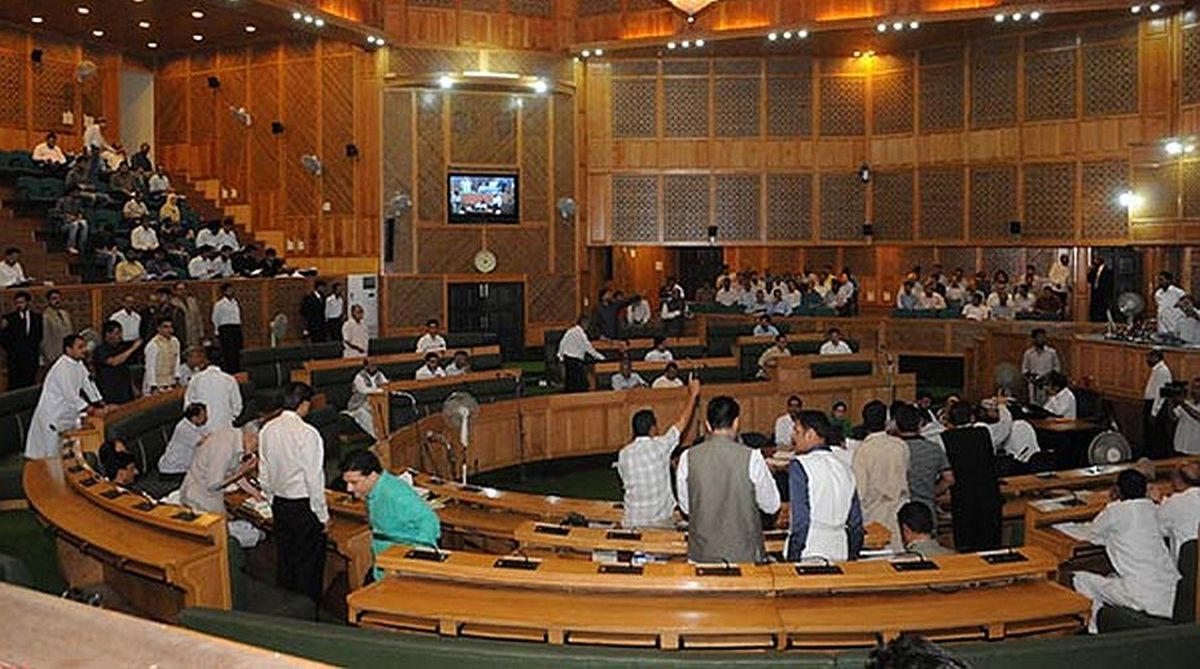Nadda hails Modi’s northeast integration efforts
Nadda took a dig at the Congress, recalling Kokrajhar's history of insurgency, which he attributed to the Congress's role in fostering divisions among communities.
Bill will be empowered to probe allegations of corruption against serving & ex-ministers, state govt employees.

Tamil Nadu Assembly (PHOTO: Facebook)
Amid Opposition walk out and allegations of toothless legislation, the Tamil Nadu assembly on Monday passed the bill for setting up the institution of Lokayukta to probe allegations of corruption against public servants. The passing of the bill came with hardly a day remaining to inform the Supreme Court about the steps it has taken to pass it.
The Tamil Nadu Lokayukta Bill 2018 was tabled in the House by D Jayakumar, minister for fisheries and administrative reforms. During the course of passing the bill, the entire Opposition under the leadership of DMK walked out of the session calling the bill a ‘toothless’ one and accusing the Treasury bench of not allowing debate on the bill in the House by introducing it in last minute.
The DMK and its allies ~ the Congress and IUML ~ wanted the bill to be referred to a Select Committee, and when their plea was not accepted, they walked out of the House in protest.
Advertisement
The Bill tabled on Monday would enable the government to order inquiry into corruption allegations against public servants. Since Monday was the last day of the current session of the Assembly, no discussion or debate was possible in the House about the Bill. It envisages the constitution of a four-member body with a chairperson, a judge of the high court or a person with 25 years’ experience in anti-corruption policy, public administration, vigilance, finance and law.
Jaya kumar described the Bill as a path breaking one which would bring all government authorities under its ambit which is expected to put an end to corruption in high places. The Bill after being adopted would pave way for the creation of an organisation that would probe into graft charges against all government and public servants. The jurisdiction of the Lokayukta would cover serving and former ministers, sitting or ex-MLAs and state government employees, said the minister.
In the Statement of Objects and Reasons, Jayakumar said the Centre had earlier enacted the Lokpal and Lokayukta Act, 2013 and it “provides” that every state has to establish the Lokayukta. The Supreme Court had asked Tamil Nadu on 27 April to submit the a report of progress on the steps the State has initiated to set up an anti-corruption mechanism to check incidents of graft in higher places. The last date for submitting the report is 10 July.
According to the bill, the anti-graft panel shall be chaired by a sitting or retired high court judge, or a person with 25 years of experience in anti-corruption policy, public administration, vigilance, finance and law.
The anti-corruption ombudsman shall have four members, including two judicial members.
The chairperson and the members will be appointed by the Governor on the recommendation of a Selection Committee comprising the Chief Minister as its head, Assembly Speaker and Leader of Opposition, or the leader of the single largest opposition party in the Assembly, it said.
The Lokayukta’s powers include summoning and examining any person and receiving evidence of affidavits. The investigation wing of the body shall have all the powers of a civil court under the CrPC, 1908, the Bill said.
Meanwhile, many NGOs lambasted the Tamil Nadu Government for not taking into confidence the general public before tabling the Lokayukta Bill 2018. “It is ironic that the Bill which will give power to the citizens to question the people in power will be passed without a deliberation with the citizens,” accused a social activist.
The last day of the assembly session saw a wordy duel between chief minister Edappadi Palaniswamy and Leader of the Opposition M K Stalin over the proposed Salem- Chennai eight-lane green corridor. In a calling attention motion, Stalin alleged that the government was not allowing him to air his apprehensions in the House over the project.
The chief minister said that there were no attempts by his government to gag anybody. “The Chennai-Salem green corridor was not for the development of Salem alone as made out by certain sections. It is for the comprehensive development of the region,” said Palaniswamy.
But as accused by the critics, the government was ready to release the arrested activists only on Sunday. During the ongoing agitation against the proposed been corridor police detained about 35 activists and three journalists covering the agitation by farmers in Thiruvannamalai.
Advertisement